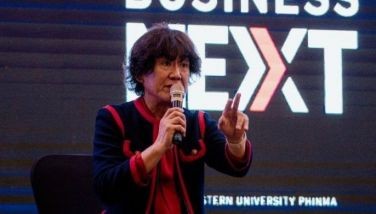New tax rules seen detrimental to small-scale entrepreneurs
CEBU, Philippines - As the Bureau of Internal Revenue (BIR) toughens up on establishments operating as tiangges or privilege stores, local business leaders believed that these marginalized enterprises need to be given consideration when paying income taxes and that BIR should instead focus on increasing their collections in other areas.
To augment its collection and ensure that everybody pays the right taxes, BIR recently issued new rules on the collection of business and income taxes among tiangges or flea markets.
Based on the Revenue Regulations 16-2013, a privilege store is defined as a stall or outlet normally set up in shopping malls, hospitals, office buildings, hotels, villages or subdivisions, churches, parks, streets and other public places for the purpose of selling a variety of goods and services for short durations or not more than 15 days.
Those operators who go beyond the 15-day limit are required to register with BIR as regular taxpayers, must have their own sets of invoices, issue official receipts, and pay the right taxes.
Cebu Business Club (CBC) president Dondi Joseph said that although all businesses should pay the appropriate taxes, the new regulations on tiangges may be bad for the industry since it could choke the small-scale entrepreneurs.
He added that those who set up bazaars and flea markets may be discouraged and decide to discontinue as the new requirements are just too stringent for them.
He advised the BIR to simplify the tax requirements in accordance to the capacity of these types of the businesses and focus on the areas where there is more significant tax evasion issues to attend to.
Mandaue Chamber of Commerce and Industry president Philip Tan shared the same sentiments as Joseph, saying that the BIR should be lenient to the marginalized business sector that tends to earn profit for survival.
“These establishments are businesses of survival. They are not making a lot of money and collecting taxes from them will add to their burden. We have to sympathize to these poor people. It’s like barking on a wrong tree,†he said.
He said that all Filipinos are also charged with taxes everyday upon purchasing goods and services. He also encouraged BIR to be strict on large-scale businesses who are illegally operating in the country.
For his part, Cebu Chamber of Commerce and Industry (CCCI) president Lito Maderazo pointed out the irony of how the government tries to raise money for social services but is not extending much support to the marginal vendors.
“That’s unfortunate. The government, especially the BIR, should have a social conscience when they subject these marginal families who are trying to work for an honest living to taxation,†he said.
While it is good to note how BIR is going after even the small establishments such as the bazaars, Filipino-Cebuano Business Club Inc. (FCBI) president Rey Calooy said that it is indeed a tedious job for the agency as these businesses are considered to be non-formal and are non-registered with the bureau.
“Sometimes the operational costs of BIR for its field personnel are higher than the actual taxes they collect,†he added.
He also cited that establishments like tiangges are supposedly exempted from paying incomes taxes in accordance to the Barangay Micro Business Enterprises Act of 2002 or the Republic Act No. 9178 that allows businesses with assets worth less than P3 million to be exempted from paying income tax. /JOB (FREEMAN)
- Latest
- Trending
























